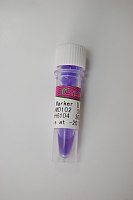Biolistic DNA Vaccination Against Cervical Cancer
互联网
互联网
相关产品推荐

MUC5B/MUC5B蛋白Recombinant Human Mucin-5B (MUC5B)重组蛋白MUC-5B;Cervical mucin;High molecular weight salivary mucin MG1;Mucin-5 subtype B, tracheobronchial;Sublingual gland mucin蛋白
¥1836

D15000分子量标准(D15000 DNA Marker)
¥100

Recombinant-Human-BRI3-binding-proteinBRI3BPBRI3-binding protein; I3-binding protein Alternative name(s): Cervical cancer 1 proto-oncogene-binding protein KG19 HCCRBP-1
¥11018

Stmn2/Stmn2蛋白/(Superior cervical ganglion-10 protein)(Protein SCG10)蛋白/Recombinant Rat Stathmin-2 (Stmn2)重组蛋白
¥69

HEXB/HEXB蛋白Recombinant Human Beta-hexosaminidase subunit beta (HEXB)重组蛋白Beta-N-acetylhexosaminidase subunit beta (Hexosaminidase subunit B) (Cervical cancer proto-oncogene 7 protein) (HCC-7) (N-acetyl-beta-glucosaminidase subunit beta)蛋白
¥1536
相关问答

